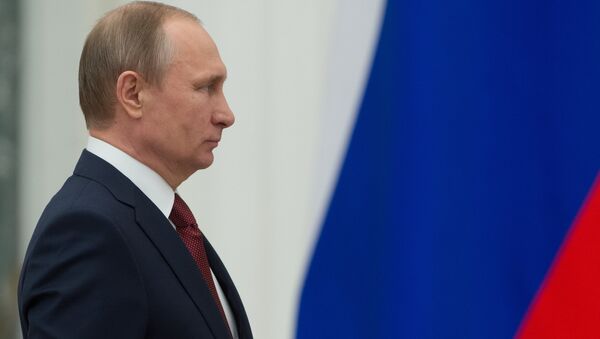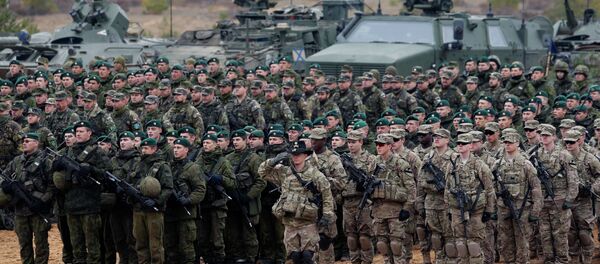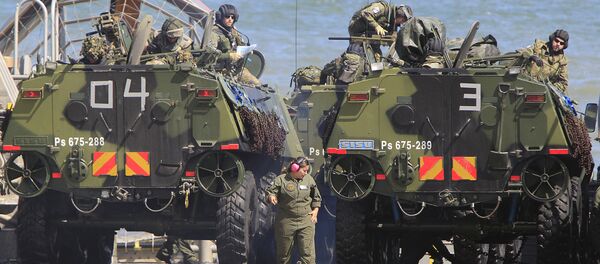"We must create a modern collective security system beyond blocs and with all countries on an equal footing," Putin said in his address to the State Duma on Wednesday, reaffirming Russia's readiness for dialogue. "For now though … we see no positive response."
"On the contrary, NATO is stepping up its aggressive rhetoric and aggressive actions close to our borders," he observed. The bloc's muscle flexing has forced Russia to improve its defense capabilities at a time when nations could cast aside "old ideological differences," stop playing "geopolitical games" and join "forces to fight international terrorism."
Trump tried to direct attention to the same issue earlier this month. In his view, NATO should be pouring time and efforts into defeating "Islamic terrorism, not nation-building." Paradoxically, the bloc played a role in making this problem worse.
"The last major NATO mission was Hillary Clinton's war in Libya. That mission helped unleash [Daesh] on a new continent," he said earlier this month. "I've said NATO needs to change its focus to stopping terrorism. Since I've raised that criticism, NATO has since announced a new initiative focused on just that."
N.A.T.O. is obsolete and must be changed to additionally focus on terrorism as well as some of the things it is currently focused on!
— Donald J. Trump (@realDonaldTrump) 24 марта 2016 г.
The Republican was referring to NATO's latest initiative meant to improve intelligence sharing on terrorism in the wake of major terrorist attacks in France and Belgium. This is a welcome development, but it pales in comparison to all the measures that the bloc will adopt to build up its military power in Eastern Europe and the Baltic region.
Germany's top diplomat also urged to avoid measures that could "renew an old confrontation," adding that it would be "fatal to search only for military solutions and a policy of deterrence."
Political analyst Michael Curtis described this consensus as "an unexpected surprise."



